If Dys4ia, a video game by indie game developer Anna Anthropy, had an ESRB warning label on it like most mainstream games, it would go something like this:
Drugs, partial nudity, sexual themes.
In Dys4ia, though, the drugs aren’t the kind peddled from the trunk of a car like in Grand Theft Auto: Chinatown Wars. The nudity (read: tits) isn’t relegated to the globes bouncing half-naked and disproportionate on the screen like Ivy Valentine’s breasts in Soul Caliber IV; the “sexual themes” go above and beyond guiding your flesh-colored avatar over another flesh-colored avatar with bumps where the breasts should be, like in GTA: San Andreas‘s Hot Coffee mod.
Instead, the drugs we’re talking about are blood pressure medication, along with estradiol and spironolactone, drugs taken for hormone replacement therapy. When you see tits on the screen, they are described by someone living in said body with said tits attached. And “sexual themes” in Dys4ia means “looking into themes of sexuality, gender and identity,” and isn’t limited to “something to get off to” (though the two aren’t mutually exclusive).
Dys4ia is a story about transitioning, after all. It’s an interactive memoir, one of those rare nonfiction and autobiographical games we see mostly being created by independent developers. Dys4ia is not what we think of when we think of video games. Instead, what pops into our heads is probably that commercially successful space marine game that takes place in a fictional world so many light-years and galaxies away; a game that celebrates both guns (the bullet-shooting kind) and guns (the bicep kind), both often exclusively attached to men.
Instead, Dys4ia is about one queer trans*woman. It’s about dealing with issues of body image, HRT and the underrepresented frustrations experienced by Anthropy, a lesbian trans*woman. This video game is about, as Anthropy wrote on her blog, her “decision to start hormone replacement therapy … [and] to catalog all of the frustrations of the experience and maybe create an ‘it gets better’ for other trans women.”
Anthropy proves to us that video games can tell our stories as queer and trans* women. They can vent our frustrations in ways other people can experience. They can help us to communicate the things we go through in an unprecedented, interactive way. Anthropy’s games explicitly challenge what we thought was possible to experience in a video game — and the whole time Anthropy is telling us: Let’s take video games back.
Dys4ia blew my mind the first time I played it. It’s a game told in a series of smaller mini-games — like WarioWare for the Gameboy Advance in how it creates a unified experience out of smaller micro-experiences. The mini-games in Dys4ia each last about five to ten seconds and are grouped into levels: level one is called “Gender Bullshit,” level two is “Medical Bullshit,” level three is “Hormonal Bullshit” and level four is “It Gets Better?”
In a game like Super Mario Bros., you know off-the-bat that you control the short red mustachioed plumber avatar, and you know the objective of the quest is to continue moving right and jump under or on things. Dys4ia, however, is striking in that you are thrown into various scenarios without knowing what is happening or who you are. Are you the boobs hovering through a series of pointy objects? Are you a shield weaving your way through missiles shot from mouths? Are you a humanoid avatar waiting in a waiting room? The answer is yes — you are all of these things.
In Dys4ia, you are confronted with an ever-changing avatar — in one mini-game you might be one thing, and in the next game, you are something completely different. It’s an experience of immediate confusion as Anthropy sends you into each mini-game without directions or clues.
For Anthropy, this changing avatar is a crucial part of Dys4ia.
“My body / identity was so multi-faceted … — one of the fantastic side-effects of making a game out of 40 different games is that the player becomes a shape-shifter: her avatar was constantly changing, it had no true, static form,” Anthropy says. “Every time I looked in the mirror I saw something different, something I liked or hated a little bit more. Sometimes I saw a vicious villainess and sometimes I saw a shapeless lump. If I had to change every day then, so, obviously had the game.”
Even when your avatar shifts so frequently in Dys4ia, one thing remains constant: You don’t know the objective of the mini game you are playing. There is always a looming sense of not knowing or understanding, and you are pushed to feel out the solution organically. You tap buttons. You move left and right with your directional pad. A lot of the experience of Dys4ia is feeling out the right thing to do, and knowing that you don’t know immediately know what that means.
The sense of confusion, frustration, of figuring out the right thing to do, creates an experience unique to video games. In Dys4ia we, as players, experience a permutation of what Anthropy went through. Yes, Dys4ia is a video game memoir, but instead of being a passive voyeur of another person’s life like in written memoir, we are similarly faced with frustrations and choices by playing.
“I figured if I was frustrated, other trans* folk might find it comforting to know that they didn’t have to rage alone,” Anthropy says. “Frustration is a powerful tool because STRUGGLE is at the heart of any story worth telling, especially any struggle about being a marginalized member of society.”
What place do marginalized people have in video game culture? What about Anita Sarkeesian of Feminist Frequency, who was harassed online with rape and death threats after she proposed her video series examining sexism in video games titled “Tropes vs. Women in Video Games”? Or the violent video game made about her where players can graphically smash in her face? Or FatUglyorSlutty.com, a website that records the sexist, derogatory and sexual remarks male gamers will make to female gamers on Xbox Live just because they can? Or a straight man complaining to Bioware about the option for gay romance in Dragon Age II — that the one gay male option was too many and resulted in the neglect of the “straight male gamer”?
In Anthropy’s book, published by Seven Stories Press, “Rise of the Video Game Zinesters,” she writes: “There’s a growing number of people who … create free games simply to make their voices heard.” Straight male video game culture has a tendency to aggressively silence and marginalize the minority gamer — people of color, women and LGBT community. For a queer trans*woman like Anthropy, creating games that speak to her experience of the world is in and of itself political.
“When you’re speaking from the margins you have to shout to be heard. All of my games are undeniably — even [to] the most sheltered, asocial nerd — about women who are queer, women who happily inhabit one side or the other of GETTING STEPPED ON,” Anthropy says. “The reality of my identity is unavoidable, and with it the reality that women like that don’t just exist, they’re also playing and making games.”
Some of my favorite games by Anthropy are witty, smart and snarky social commentaries — these games speak from a place that is as frustrated as many of the video games are frustrating. For many of these games, including Mighty Jill Off, Realistic Female First-Person Shooter, Transgression and Savagery, the point isn’t winning. If you do “win” the game, your sense of completion is tied in very closely with a sense of discomfort or shock, which is incredibly different from the sense of satisfaction or release most commercial video games like to leave you with. Instead of video games catering to the player’s sense of completion, Anthropy throws you in the dark on your head: You are in her world now, and she isn’t going to play fair.
The fact that Anthropy’s games don’t end with happy times and rainbows makes you really consider what the word “fair” means to begin with. Anthropy deconstructs and examines inequalities, sexism and transphobia in her games and there’s a point where you start seeing that playing “fair” means “putting the gamer in a privileged position of power” and she’ll have none of that. You, the gamer, are hers to control, manipulate and toy around with. She is not catering to you. Instead, you are experiencing what she wants you to experience. You go where she wants you to go. You will climb four million goddamn steps in the difficult-as-hell platformer Mighty Jill Off (where you, a submissive lesbian, are going up a giant tower to appease your dominant) only to get to the top and be thrown back to the bottom again. Playing Anthropy’s games is like engaging in a sub/dom relationship. And I kind of like that.
“Mighty Jill Off is straight-up about … enduring frustration for the sake of pleasing your queen and meeting her expectations, and the kind of trust that’s necessary between queen/slut and game/player for that to be possible,” Anthropy says.
The dynamic between the game and player involves a lot of trust. The point of many of Anthropy’s games is wondering, “Okay, what am I doing here?” And Anthropy tells you: “Just shut up and play.” And you do.
When you do shut up and play, you experience something pretty incredible. You experience imminent, predestined failure because you are a woman and women just can’t do things in Realistic Female First-Person Shooter.
You see firsthand the idiocy of being discriminated against as a trans*person in Transgression, Anthropy’s game critiquing the Michigan Womyn’s Music Festival for being transphobic and excluding trans*women.
And in Savagery, you are all that stands between a mob of angry glitter bombers and Dan Savage, who has been both praised for creating the It Gets Better Project and accused of transphobia, misogyny, racism and biphobia. The question is: Do you protect him? Or do you shower him in as much glitter as quickly as possible?
It’s this kind of political critique that I’ve never seen expressed so well in video games. It never occurred to me prior to playing Anthropy’s games that the video game is possibly the best medium for expressing anger, frustration and control. So why haven’t we seen more games like Anthropy’s?
Maybe because the video game industry needs more people of color, queers and women, not only as consumers, but producers of games. Possibly because we need to see more games created as a labor of love, not just the space marine games that are so economically viable. Possibly because the video game industry needs more Anthropys — at least, more marginalized people on the outside looking in.
“We’ve entered this vicious cycle where this small group of mostly straight cisgendered white dudes are making games for other straight cis white dudes who will grow up and be allowed to make the next generation of games,” Anthropy says. “And so what we’ve got is a monoculture. Well, a monoculture’s not going to be the defining cultural form of ANYTHING.”
What do we do? We take video games back.
“The solution, I think, is for more people who speak from marginalized perspectives to MAKE games. Queer people, people of color, trans people, old folks, women of all stripes and bodies of all ability. The means are there. The only problem is to get all these people to care about a form that’s for 40 years been dominated by dudes talking exclusively to and tea-bagging each other,” Anthropy says.
“At Bluestockings on my book tour [for “Rise of the Video Game Zinesters”] a lady told me she’s having a hard time convincing her peers – people with radical politics who’d have a lot to contribute to games – to actually CARE about videogames. And I told her, that’s part of why I wrote the book: to say, games don’t HAVE to be about space marines fucking aliens with chainsaws if we don’t want them to be.”
There can be games about lesbians that don’t overtly objectify queer women. There can be games about the horribly restrictive body norms set in place by the gaming industry. There can be games about taking out the trash, getting older, getting pregnant, being angry about gay rights. There are so many untapped possibilities. As queer gamers, women and people of color, we have the agency to make games ourselves, too.
Where can we get started developing our own video games? Anthropy wrote an article for The Escapist that lays out good starting points for beginner game designers. First is Inform 7, a very comprehensive interactive fiction (also known as text adventure) designer that assembles games using basic language, so no coding is required. I actually tried making my own interactive fiction game, a short fiction piece where you could pick up and examine various objects I placed in a dark well underground. So far so good.
According to Anthropy’s article in The Escapist, “Chris Jones’ Adventure Game Studio, Enterbrain’s RPG Maker (which documentary filmmaker Danny Ledonne used to create his controversial Super Columbine Massacre RPG!) and Nicklas Nygren’s Knytt Stories (an avenue for amateur game developers to craft their own platform adventures) are bringing development to the masses. Likewise, Dutch professor Mark Overmars created a program called Game Maker to help him teach his game design class; now the program has become an inexpensive toolset for developers with no coding background.”
The tools are there — all that is left is us. If video games never seemed interesting to you before, maybe it was because video games never really spoke to you one-on-one about your own experiences. Maybe it was because you wanted a different dynamic in video games — not just the shoot-them-and-win plotline — maybe you wanted someone to boss you around. Maybe you wanted to boss someone else around. Maybe you wanted to see your life represented in vivid detail. And now you can create these things yourself.
“I want a future where my mother can send me a game that she made … I want two high school girls to fall in love because one played the game the other made about growing up gay. I want people to better understand the ways that capitalist imperialism fucks them over because they played a game that allowed them to interact with a miniature capitalist system. When I’m an old woman, I want the average 12-year-old to have made more games than I have in a lifetime,” Anthropy says.
“It’s not gonna happen until we take videogames back, until we carve out a space in games for ourselves, until we remind them that the human experience is so much more diverse than their monomyth. Games can be so much and they’re so little. I’m tired of videogames failing to live up to my expectations, and I’m tired of having such a hard time finding a game to play about a dyke like me.”
This is what you do: download Inform 7. Make a text adventure. Make a group on Autostraddle called “Autostraddle Video Games.” Upload your text adventure game to a file hosting service so that other Autostraddle people can click on it, download it and play your game. Share the game. Talk about the game. Inspire other people to make games. This is how movements start, isn’t it?
Visit Anthropy’s website by clicking here.
View and play many of Anthropy’s games by clicking here.
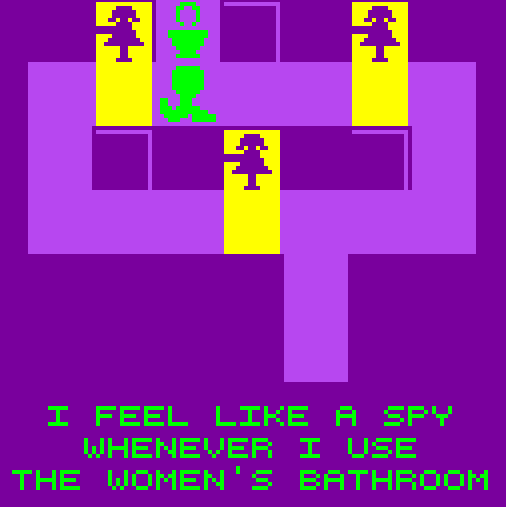
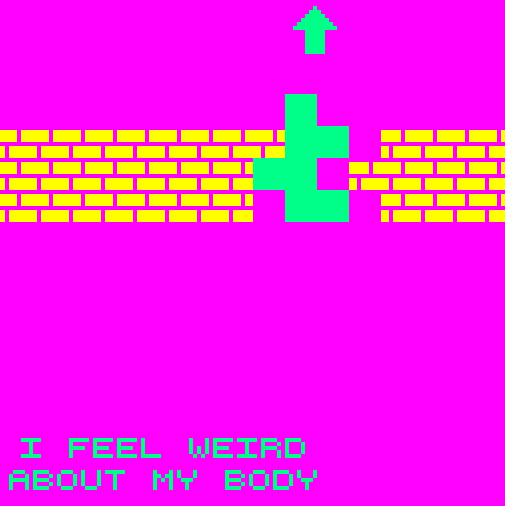
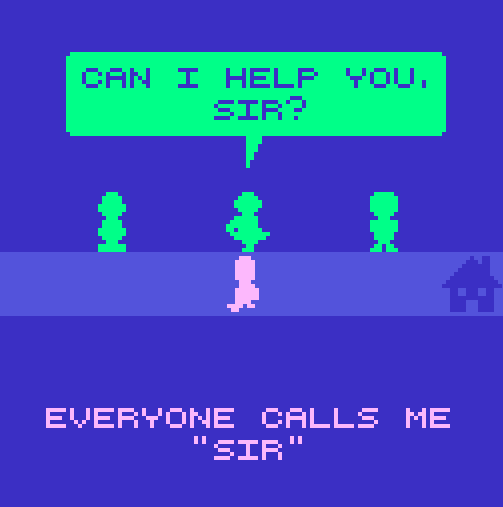
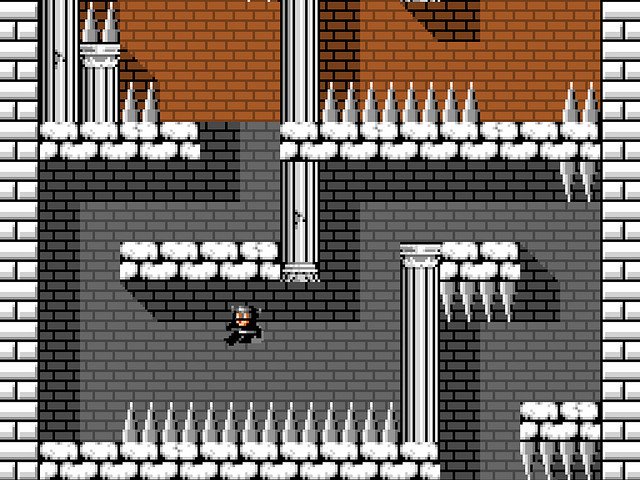
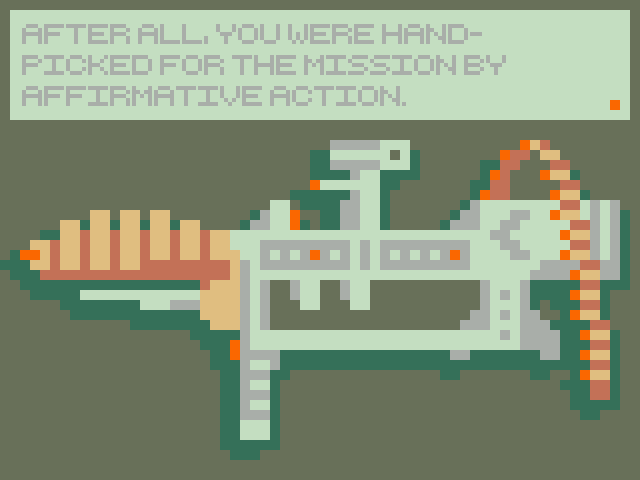
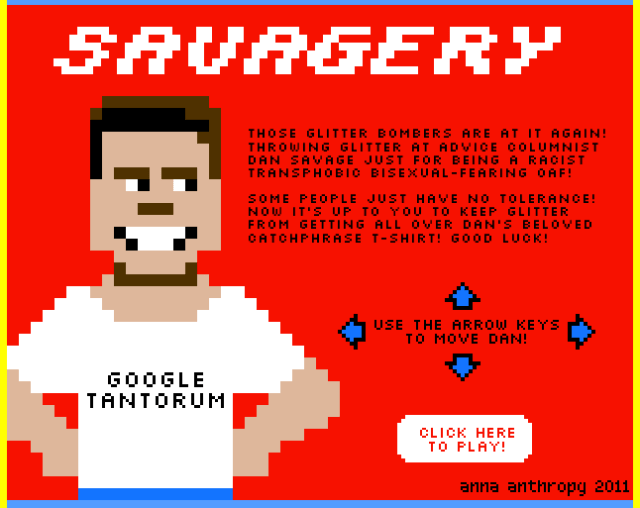
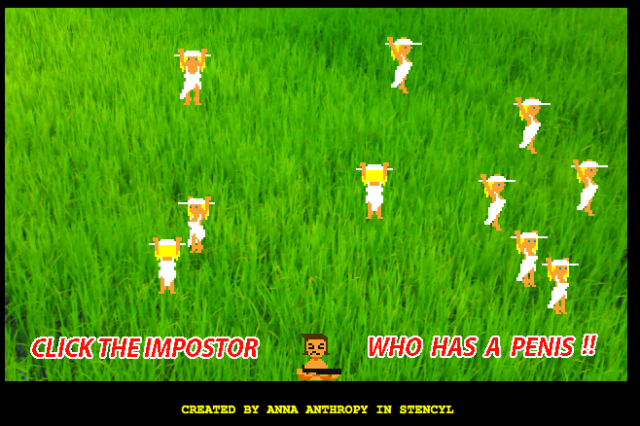
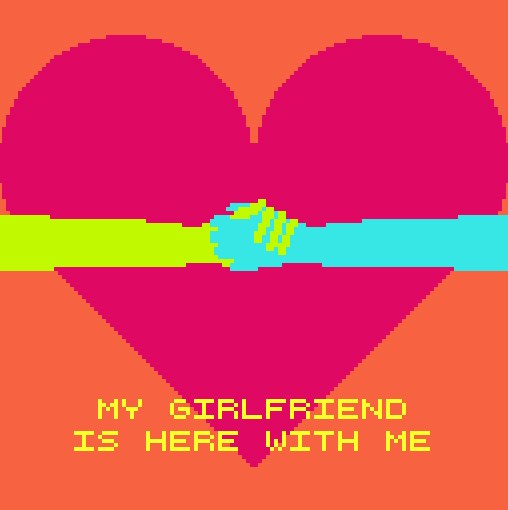
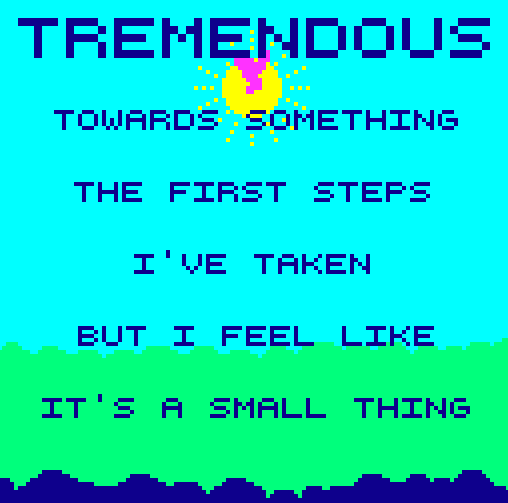

With the awesome addition of Dys4ia, I think the things written for lesbian trans women officially need to be counted on two hands instead of one!
I’m going to have to look into more of Anna Anthropy’s projects.
Just played it. Nearly cried.
Just played it. Totally cried.
Hah yes! Videogames totally turned me gay! Or, actually, made me realize just how awesome & desirable an actual relationship between two women is/could be. Thanks, mass effect.
Also this browser game was very interesting and hits a lot of points Anthropy makes:
http://gambit.mit.edu/loadgame/summer2011/aclosedworld_play.php
Love that game too!
HEY. let me suggest twine as a pretty ideal starting point for people with no game-making experience (mac version is buggy, unfortunately):
http://gimcrackd.com/etc/src/
i’ve seen queer and women authors flock to it enormously in the last year, and it’s one of the least technical game story-telling tools i’ve ever encountered.
I read the article and got a little weepy. I grew up as a gamer, my entire family is nerdy. It’s so good to feel there are others like you. Stuff like this is why I am so hopefully stoked about GaymerCon.
Great article, thanks Whitney. I’ve always been a video games nerd but never thought of them as a valid medium to talk about real life, advocate and share experiences – which is weird, because they would be perfect for it. As you wrote, the reason I never really took them seriously probably is because they’re all made for and by straight cis white dudes with the sole intent of selling as many copies as possible. As much as I love and play games, I’ve never feel part of the gaming community or as if the game creators think about me and people like me when making and marketing their products.
I love the idea of people making their own games as a way to communicate and subvert the mainstream video games industry, and also an AS group for people to make and share their games here!
Off to trade my evening on Diablo 3 for Anthropy’s games now.
Really good read: I think Dys4ia is very good at communicating vulnerablity as well as frustration. Perhaps because, symbolically, everything has to be so distilled and communicable, as well as the sense of disorientation the tasks give you; sometimes the screen disappears and you suspect you’ve missed something, somehow.
It’s inspiring, it makes me want to write and draw, and it makes me think about my transition in a way that, generally, I try not to. The kinds of awful insecurities you need to clamp down upon to be a functioning human being; to maintain relationships.
Linking about Dan Savage’s misogyny and transphobia to a site also guilty of misogyny and transphobia. Nice. http://www.transadvocate.com/queerty-encourages-misogyny-transphobia-takes-issue-with-homophobia.htm
The first time I clicked on this article it said ’10 comments” but there were none after I read it. I reclicked on it and then the comments were at the end. I felt like I might have been playing the actual game for a minute there.
Pingback: Anna Anthropy: Queering Video Games One Pixel at a Time | All of the games
Hey, I like Space Marine. Probably because I have tonnes of the little plastic crack…
I also got linked to dys4ia a few months back by my gf… didn’t have the reaction most of you seem to… I mean I liked it for what it was, but it seemed more like something to explain a little to non-trans people about what we go through. Each to their own.
I am so glad this article has been written – thanks, Whitney!
It seems ages ago I played dys4ia, but it still makes me think about what trans people have to deal with. Honestly, I had no idea.
It’s not often an (I hate to label it as such..) “educational game” has any tangible effect on me.
I’ll be playing the rest of Anna Anthropy’s projects, for sure!
Excellent, excellent article!
This may be slightly off topic but I just wanted to say that this website has opened my eyes.
I am from a country where people are perceived to be either gay, straight or transgender.
I am a lesbian who likes lesbians and who has never slept with or has any interest in men.
When I started reading through articles in autostraddle, I became aware that I am somehow a gold star lesbian cis woman.
I did not know what “cis” was. I thought I was just a woman.
I am not being biphobic or transphobic or anything phobic…
I just wasn’t aware things like pansexual or genderqueer/gender neutral existed.
I am happy I am now aware of all these things and that I now know that there are many, many, MANY different types of people.
I slightly feel in the minority on this website in that i’m a lesbian who doesn’t have ANY interest in men, has no history with men and only have an interest in lesbian women.
I thought that’s what a lesbian was!
But I guess that’s just me.
I am glad my eyes are open now to the ways of other people!
And other types of women :)
Lots of love to Autostraddle!
I was really excited when I saw this article on the front page. My girlfriend showed me Dys4ia a while ago when she found it on the Internet. She really liked it and felt that it was very representative of her experience, at least. I was really moved when I played it, because even though I, as a cis woman, would never be able to understand her experiences as a trans* woman, I at least had this tiny window into that aspect of her life. Thanks so much for this article!! I am totally going to show my girlfriend tonight. I need to check out Anna’s other games (especially Savagery!) and definitely her book!
Whitney, truly fantastic article! I really love that you linked to tools at the end to get folks started; that was an excellent touch.
As much as gamer culture has been taking a turn for the worse, games themselves are actually getting bette and more progressive. Ten years ago, it was practically unheard of to have gay characters or gay relationships in video games. Nowadays, we have Bioware finally pushing the envelope by placing actual gay romanceable characters in a mainstream, big-budget space marine game. You’ve got Fallout: New Vegas that has a lesbian companion character who can help you out on your journey. You’ve got Skyrim, that allows you to marry characters of the same sex. These are all big, mainstream games.
I know it hasn’t necessarily gotten better for Trans* players. I’m gay and cis, not trans, so I am certainly biased in that way. But I would hope that with the crawl of progress being made when it comes to gay characters, that will open to door for progress for Trans* characters.
Anyway, for anyone who wants to go a little deeper into game-making and learn coding, there are some really fantastic, free resources available on the Web:
Development tools:
http://www.microsoft.com/visualstudio/en-us/products/2010-editions/express
http://www.eclipse.org/
http://www.python.org/
Educational resources:
http://msdn.microsoft.com/en-us/beginner/default.aspx
http://see.stanford.edu/see/courseinfo.aspx?coll=824a47e1-135f-4508-a5aa-866adcae1111
http://www.greenteapress.com/thinkpython/
Dear Whitney,
Once again, you have changed my life with your article.
Love,
Ali
This article combines several of my favorite things! (Autostraddle, Anna Anthropy, and Inform 7) A couple of points to make about Inform 7, though:
1) “No coding is required” is definitely a lie. It’s coding in a friendly language that kind of reads like English, but it is indeed coding. The recommendation upthread for Twine is a great one for actually no-code-required.
2) Instead of downloading the offline IDE for Inform 7 and then having to upload your game to a server for other folks to play it, consider using http://playfic.com/ It’s an in-browser Inform 7 editor and interpreter, so you can write a game and send it to your friends all from one place. It doesn’t have the full functionality of the offline version, but it’s a great place to get started.
Played Dys4ia a few months ago – I think your reading of it is really interesting. I also want to play her other games now!
I love this so much. I downloaded the Realistic Female First Person Shooter game and nearly wet myself from laughing so hard. These are such brilliant commentaries.
Pingback: Muito Mais do que Seus Preconceitos - 27 Mulheres Trans* que você precisa conhecer - True Love | Cultura Lésbica
Pingback: Case Study: Dys4ia – A serious game | Online Doco Process
Pingback: Reading Response 4 | Designed Play – Spring 2016
Pingback: Muito Mais do que Seus Preconceitos – 27 Mulheres Trans* que você precisa conhecer – True Love
If you love pixel art, you should not miss this site: https://pixelart123.de/fr/.